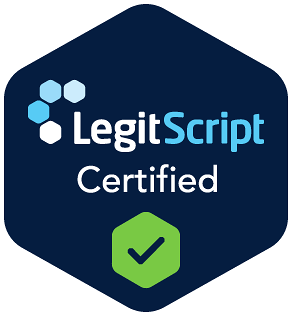Addiction Treatment Programs at The Garden
Substance-Specific Treatment Programs
Making the courageous decision to seek help for addiction is the vital first step on your journey to recovery. You are not alone in this; a future free from substance use is not only possible but within reach. Our goal at The Garden is to create a secure healing space which enables genuine recovery to start.
The selection of an appropriate program is a critical factor in success. Whether you or a loved one is battling substance dependency or a behavioral addiction, you deserve a treatment plan that is not only effective but also deeply compassionate and meticulously customized to your unique needs.
We are confident that individualized care, combined with expert guidance, enables every client to achieve a lasting recovery.
Opioids such as the prescription painkillers oxycodone and hydrocodone serve as pain management tools, but they have strong potential for addiction. The wrong application of these substances can lead to dependence issues. The opioid crisis is a continuing public health emergency as overdoses caused by opioids continue to rise.
Alcohol
Alcohol represents one of the most commonly misused substances throughout the world. Excessive drinking, which is legal and socially acceptable, leads to liver damage, cognitive problems, and higher chances of developing mental health issues.
Benzodiazepines
Benzodiazepines, which include Xanax, Valium, and Ativan, serve as prescribed medications for managing anxiety and helping patients sleep. However, these medications are highly addictive when misused. The long-term use of these substances leads to dependence, mental decline, and withdrawal symptoms, which require medical treatment for effective management.
Fentanyl
The synthetic opioid Fentanyl is up to 100 times the strength of morphine.[1] The medication was first created to treat severe pain, but it has become a primary reason for fatal overdoses because of its strong potency. Even tiny amounts of fentanyl can be deadly when combined with other substances or when people take it in counterfeit pills.
Kratom
Kratom is a plant-based substance which generates stimulant and opioid-like effects that have made it widely recognized. The substance serves two purposes for some users who take it to alleviate pain and treat opioid withdrawal symptoms, but it creates dangers of substance dependence, liver problems, and various other medical issues.
Cocaine
Cocaine is a powerful stimulant drug that creates feelings of euphoria and increased energy. The substance produces brief effects that drive users to consume it again and again, which results in a strong potential for developing substance dependence. The consumption of these substances results in heart complications and mental health deterioration while producing intense physical and emotional addiction i
Meth
Meth is a highly addictive stimulant that affects the central nervous system. The substance creates brief periods of extreme happiness, which leads to severe damage to both physical and mental wellness.
Crack
Crack is a smokable form of cocaine that delivers an intense but short-lived high. The substance creates intense addiction while leading to multiple dangerous health complications, which include respiratory problems, heart damage, and fast deterioration of physical and mental health.
Heroin
Heroin is an illegal opioid derived from morphine. The substance is highly addictive. Because users inject it, heroin use leads to higher risks of contracting HIV and hepatitis C. The use of heroin produces severe physical, mental, and social damage to users, while overdose remains a permanent danger.
The Core Components of Effective Addiction Treatment
Choosing a treatment center is a significant decision. You need to locate a facility that provides safety, respect, and understanding to both you and your family members. The Garden offers comprehensive care through its skilled medical staff, clean environment, and a personalized treatment approach.
Evidence-based therapies form the base of all successful treatment programs, which receive their support from a complete treatment strategy. This means that the methods used have been scientifically studied and proven to be effective.
A quality treatment center will focus on more than just abstinence; it will address the underlying causes of addiction, including co-occurring mental health conditions, in what is known as dual diagnosis treatment.
Reaching out for help is an act of hope. Our team provides both compassionate and professional medical care to help you achieve lasting recovery. Healing begins here.
The Importance of Treatment
Each of these substances poses serious risks to a person’s health and well-being. Seeking professional treatment stands as the essential step for anyone who battles addiction.
Evidence-based therapies, together with medical detox and continuous support, enable people to achieve recovery and build a better future.
Frequently Asked Questions About Our Addiction Treatment Programs
How do I know which recovery program is right for me?
The selection of a recovery program depends on multiple elements, which include substance type, addiction duration and intensity, your physical and mental state, and your living situation. A professional clinical assessment is the best way to determine the appropriate level of care.
What therapies are used in addiction rehabilitation?
Effective addiction rehabilitation relies on evidence-based therapies. Three of the primary treatment methods include Cognitive Behavioral Therapy (CBT), Dialectical Behavior Therapy (DBT), and Motivational Interviewing. Group therapy and family counseling also serve as essential components of treatment, which help people construct support networks and heal damaged family bonds.
Can mental health issues be treated along with addiction?
Yes, absolutely. Dual diagnosis treatment refers to the process of treating people who have mental health conditions such as depression, anxiety, and PTSD, together with their addiction. The integrated method serves as an essential recovery strategy because substance use problems often develop from untreated mental health conditions. A quality treatment program will have staff qualified to address both issues simultaneously.
How successful are different kinds of addiction treatment?
The achievement rates of addiction treatment depend on both personal factors and the standard of care provided by the program. Research indicates that patients obtain better results when they undergo treatment.[2] There is no single “cure,” but these comprehensive approaches give individuals the best chance at achieving and maintaining long-term sobriety.
Sources
[1] Fentanyl. (2025, June 6). National Institute on Drug Abuse. Retrieved from https://nida.nih.gov/research-topics/fentanyl
[2] Treatment and Recovery | National Institute on Drug Abuse. (2025, January 8). National Institute on Drug Abuse. Retrieved from https://nida.nih.gov/publications/drugs-brains-behavior-science-addiction/treatment-recovery



